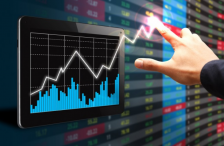Contents:

Flexibility offered to policy makers- Fixed exchange rate prevents policy makers being able to do monetary policy to help the domestic economy, on the other hand it allows policy makers to concentrate on aspects of the economy other than the exchange rate. A fixed exchange is when the government pegs the currency to the exchange rate of other countries exchange rate. Often the exchange rate chosen is the countries main competitor, thus many countries choose to peg to the USD. Changes in the exchange rate can affect both economic and personal situations.

J Curve: Theory, Its Uses, and an Example – Investopedia
J Curve: Theory, Its Uses, and an Example.
Posted: Sat, 25 Mar 2017 23:39:00 GMT [source]
For example, as long as the Chinese government continues to maintain a managed currency peg, then the RMB would be assumed by many analysts to be undervalued, regardless of current economic conditions. If the RMB were allowed to be traded freely, without intervention by the Chinese government, then the exchange rate of the RMB against the dollar and other currencies would more likely be viewed as being determined by market forces and hence not undervalued. A move to a floating exchange rate is typically accompanied by the elimination of capital controls that limit a country’s private citizens from freely purchasing and selling foreign currency.
Effects of Currency Appreciation
Calculate the rate of change in the dollar value relative to the euro between 2003 and 2004. Calculate the rate of change in the euro value relative to the dollar between 2003 and 2004. Note that if the ¥/$ rate rises, then its reciprocal, the $/¥ rate, falls. Since the $/¥ rate represents the value of the yen in terms of dollars, this means that when the dollar appreciates with respect to the yen, the yen must depreciate with respect to the dollar.
Many analysts contend the sharp drop in China’s current account surpluses may have had more to do with the effects of the global economic slowdown than a change in China currency policies . Almost think about the exchange rate as the price to “buy a pound” with dollars . For example, if the dollar is stronger than a pound, it will be able to buy more pounds with $1. On the other hand, if a dollar is weak, it might not be even able to buy one pound.
Meaning of appreciation in English
The effect on interest rates is likely to be greater during periods of robust economic growth, when investment demand is strong, than when the economy is weak. Some economists question whether RMB appreciation would produce significant net benefits for the U.S. economy. They argue that prices for Chinese products would rise, which would hurt U.S. consumers and U.S. firms that use imported Chinese components in their production.
- China’s private consumption as a percent of GDP dropped from 48.8% in 1990 to 35.4% in 2009—the lowest among any major economy (while the U.S. rate in 2009 was 70.5%, which was the highest among the major economies).
- This causes the demand for dollars to shift to the right, increasing the quantity and price of dollars.
- The House approved a currency bill (H.R. 2378) in the 111th Congress and the Senate passed one (S. 1619) in the 112th Congress, though neither became law.
- It means that more goods can be purchased from India in rupees with the same amount of dollars.
- Over the past several years, the United States has maintained one of the lowest gross saving rates (i.e., total national saving as a percent of GDP) among developed countries, while China has maintained one of the world’s highest national saving rates.
https://traderoom.info/ depreciation is when the domestic currency decreases in value and the amount of foreign currency it can purchase falls. An economy experiencinggrowthresults in a currency appreciating, and the exchange rate adjusts accordingly. The country with the weakening economy may experience currency depreciation, which also has an effect on the exchange rate.
Fixed exchange rates
From July 21, 2005, to July 21, 2008, the dollar-RMB exchange rate went from 8.11 to 6.83, an appreciation of 18.7% (or 20.8% if the initial 2.1% appreciation of the RMB to the dollar is included). The situation at this time might be best described as a “managed float”—market forces determined the general direction of the RMB’s movement, but the government retarded its rate of appreciation through market intervention. Legislation to address China’s currency policy has been introduced in every session of Congress since 2003. The House passed currency legislation in 2010 and the Senate did so in 2011, although none became law. 1276 to “clarify that U.S. countervailing duties may be imposed to address subsidies relating to a fundamentally undervalued currency of any foreign country.” On June 7, 2013, Senator Sherrod Brown introduced S. 1114, which would require action against certain misaligned currencies.
The more imports a country can obtain from a given level of exports, the better off it is materially. China appears to be willing to “subsidize’ its exports in order to boost jobs in export-oriented industries. However, Chinese consumers are made worse off. As indicated in Figure A-6, China’s personal disposable income as a percent of GDP declined from 56.5% in 2002 to 48.9% in 2009, indicating that Chinese households did not benefit as much from China’s economic growth as other sectors of the economy.

To calculate depreciation, we will use dollars to euros as an example. To calculate appreciation, we will use dollars to euros as an example. Capital outflow and inflow can each cause currency depreciation and appreciation, respectively. Balance sheet, to show a “paper gain.” That means the current price of the asset is higher than what the owner paid for it, but it’s still in the owner’s possession. Appreciation is the opposite of depreciation, which is when an asset decreases in value over time. The U.S. dollar index is a measure of the U.S. dollar’s value relative to the majority of its most significant trading partners.
Let’s explore the https://forexhero.info/ of changes in the exchange rate and see how economic variables, such as inflation, the trade balance, GDP and exports & imports, are affected. In economics, the term “currency appreciation” refers to an increase in the value of one country’s currency over another currency. Currencies can appreciate for several reasons, including a rise in inflation and interest rates or an increase in demand for domestic currency in a global market. Speculation happens when traders in the foreign exchange market buy and sell currencies based on if they think a currency will appreciate or depreciate. It is partially based on emotion and partially on opinions and experience.
In addition, an increase in investment demand by foreigners will increase the amount of foreign currency relative to U.S. dollars and will appreciate the U.S. dollar. If there is a rapid appreciation in the currency, it can become a major problem during economic disturbances. It can also be a reason for domestic countries to become less competitive in the international markets.
Advantages and Disadvantages of Floating Exchange Rates
Various factors in the economy such as changes in supply, demand, and people’s tastes and preferences can cause the value of a currency to appreciate or depreciate in comparison to another. This paper sheds light on the link between the interest rate policy in large advanced economies with international funding and reserve currencies and the use of reserve requirements in emerging markets. In contrast, when global liquidity risk rises and funding from the large advanced economies dries up, emerging markets lower reserve requirements.
There have been numerous reports of labor unrest and strikes in different parts of https://forexdelta.net/ in 2010, mainly over pay issues. Chinese officials are concerned that an appreciation of the RMB could induce Chinese export producers to try to hold down wages to remain competitive, or could force them out of business, which could lead to more job losses and provoke more unrest. Depending on the elasticity of demand for the product, some might be willing to pay the extra price and buy the same level as before, some might buy less of the product, and some might stop purchasing the product altogether. In 2012, the ratio of U.S. gross domestic savings to gross investment was 77.3%, the lowest among the world’s major economies. On the other hand, the ratio for China was 105.7% (see Table A-1). The U.S. federal budget deficit increased sharply in FY2008 and FY2009, causing a sharp increase in the amount of Treasury securities that had to be sold.

The dollar depreciates with respect to the yen if the ¥/$ exchange rate falls. This definition is especially useful to remember when one is dealing with unfamiliar currencies. Thus the value of the euro (€) in terms of British pounds is given as the £/€ exchange rate.
Information is from sources deemed reliable on the date of publication, but Robinhood does not guarantee its accuracy. You can also estimate the future growth of an investment if you know the initial price of the asset and its estimated annual average rate of appreciation. Although past performance does not guarantee future returns, this calculation may be useful when comparing investments to identify which option is likely to be more profitable. You can find out how much an asset has appreciated as a dollar amount and as a percentage. To calculate the percentage change rate, take the difference between how much the asset is worth now and how much you paid, and divide that number by the initial price. It generally appreciates in value over the long term, although the specifics depend on factors such as location and condition.
- Decrease domestic consumption and encourage exports and investment.
- The exchange rate from dollars to euros went from €0.82/$1 to €0.73/$1.
- Let us understand the advantages and disadvantages of the domestic or foreign currency appreciation through the discussion below.
- The exchange rate compares the value of one currency to another and is often the go-to measure for currency value.
- The purchasing power of the domestic currency in foreign markets falls too.
We combine the ISIC revisions 2, 3 and 4 of the employment data. Missing data is supplemented using information from the Groningen Growth and Development Centre 10-sector database. The data and codes for this paper are available on the Journal website.
For many years, China has been a high-saving country that has run overall trade surpluses and the United States has been a low-saving country that has run overall trade deficits . China’s use of an exchange rate peg and capital controls may have contributed to its high saving rate, but it is unlikely that movement to a floating exchange rate would eliminate the large disparity between U.S. and Chinese saving rates. Thus, it is likely that the United States would continue to be a net debtor and China would continue to be a net creditor if the RMB rose in value. If so, economic theory predicts the countries’ bilateral trade imbalance would either persist or possibly be replaced by new bilateral imbalances with third countries. The issue of exchange rate effects is further complicated by China’s role as a major assembly center for multinational corporations. Many analysts contend that the sharp increase in U.S. imports from China over the past several years is largely the result of movement in production facilities from other countries to China.